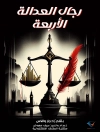ESFP are fun and like to be the center of attention; they are explorers and love to learn and share their learning with others. In this book you will find seven short stories specially selected to please the tastes of the ESFP. These are stories by renowned authors that will surely bring reflections, insights and fun to people with this kind of personality.
This book contains:
– The Open Boat by Stephen Crane.
– The Great Good Place by Henry James.
– A Sale by Guy de Maupassant.
– The Tell-Tale Heart by Edgar Allan Poe.
– The Sphinx Without a Secret by Oscar Wilde.
– Three Questions by Leo Tolstoy.
– The Diamond as Big as the Ritz by F. Scott Fitzgerald.For more books that will suit you, be sure to check out our Two Classic Novels your Myers-Briggs Type Will Love collection!
***
Cover image: Michelangelo (1475-1564), artist who exerted an unparalleled influence on the development of Western art and ESFP.
O autorze
Stephen Crane was an American poet, novelist, and short story writer. Prolific throughout his short life, he wrote notable works in the Realist tradition as well as early examples of American Naturalism and Impressionism. He is recognized by modern critics as one of the most innovative writers of his generation.
Henry James was an American-British author regarded as a key transitional figure between literary realism and literary modernism, and is considered by many to be among the greatest novelists in the English language. He was the son of Henry James Sr. and the brother of renowned philosopher and psychologist William James and diarist Alice James.
Henri René Albert Guy de Maupassant was a 19th century French author, remembered as a master of the short story form, and as a representative of the Naturalist school, who depicted human lives and destinies and social forces in disillusioned and often pessimistic terms. Maupassant was a protégé of Gustave Flaubert and his stories are characterized by economy of style and efficient, effortless outcomes.
Edgar Allan Poe was an American writer, editor, and literary critic. Poe is best known for his poetry and short stories, particularly his tales of mystery and the macabre. He is widely regarded as a central figure of Romanticism in the United States and of American literature as a whole, and he was one of the country’s earliest practitioners of the short story. He is generally considered the inventor of the detective fiction genre and is further credited with contributing to the emerging genre of science fiction.
Oscar Fingal O’Flahertie Wills Wilde was an Irish poet and playwright. After writing in different forms throughout the 1880s, he became one of London’s most popular playwrights in the early 1890s. He is best remembered for his epigrams and plays, his novel The Picture of Dorian Gray, and the circumstances of his criminal conviction for 'gross indecency’, imprisonment, and early death at age 46.
Count Lev Nikolayevich Tolstoy, usually referred to in English as Leo Tolstoy, was a Russian writer who is regarded as one of the greatest authors of all time.[2] He received multiple nominations for Nobel Prize in Literature every year from 1902 to 1906, and nominations for Nobel Peace Prize in 1901, 1902 and 1910, and his miss of the prize is a major Nobel prize controversy.
Francis Scott Key Fitzgerald was an American fiction writer, whose works helped to illustrate the flamboyance and excess of the Jazz Age. While he achieved popular success, fame, and fortune in his lifetime, he did not receive much critical acclaim until after his death. Perhaps the most notable member of the 'Lost Generation’ of the 1920s, Fitzgerald is now widely regarded as one of the greatest American writers of the 20th century. He finished four novels: This Side of Paradise, The Beautiful and Damned, The Great Gatsby, and Tender Is the Night.












